1. Overview
Rosen Asenov Plevneliev (Росен Асенов ПлевнелиевBulgarian, born on May 14, 1964) is a prominent Bulgarian politician who served as the 4th President of Bulgaria from 2012 to 2017. A member of the GERB party, he previously held the position of Minister of Regional Development and Public Works from 2009 to 2011. His victory in the 2011 presidential election was significant as it granted the GERB party control over key political positions in Bulgaria, thereby enhancing their capacity to implement economic reforms in a nation grappling with financial challenges. Throughout his career, Plevneliev has been recognized for his reformist stance, focusing on administrative improvements, energy independence, and a principled foreign policy.
2. Biography
Rosen Plevneliev's personal history, including his early life, education, and family background, shaped his path toward a career in public service.
2.1. Early life and education
Rosen Plevneliev was born in Gotse Delchev, Bulgaria, on May 14, 1964. His mother, Slavka Plevnelieva, worked as a teacher, while his father, Asen Plevneliev, was an activist within the Bulgarian Communist Party. When Plevneliev was 10 years old, his family relocated to Blagoevgrad. He completed his secondary education at the Blagoevgrad Mathematical and Natural Sciences High School, graduating in 1982. In 1989, he earned his degree from the Higher Mechanical-Electrotechnical Institute in Sofia. In the same year, he became a fellow at the Institute for Microprocessing Technology in Pravets. During his university studies, Plevneliev was a member of the Komsomol, the youth organization of the Bulgarian Communist Party.
2.2. Family background
Plevneliev's family has roots tracing back to Bulgarian refugees from southern Macedonia. In 1913, his ancestors resettled from the village of Petrousa, located in the municipality of Prosotsani within the Drama regional unit of Greek Macedonia. The surname Plevneliev itself is derived from the Bulgarian name for the village of Petroussa, which is Plevnya (ПлевняPlevnyaBulgarian), meaning "barn."
3. Early Career and Business Activities
Before entering high-level politics, Rosen Plevneliev established himself in the business sector, particularly in the building and development industry.
3.1. Founding a company
Following the significant political changes in Bulgaria in 1990, Rosen Plevneliev embarked on an entrepreneurial path. In that year, he founded a private building company within Bulgaria, marking his entry into the private sector.
3.2. Major projects
His company undertook various projects, notably contributing to the development of the Sofia Business Park. This project was among the significant ventures his company completed.
4. Political Career
Rosen Plevneliev's political career saw a rapid ascent from a ministerial position to the highest office in Bulgaria, where he played a crucial role during periods of political and economic challenge.
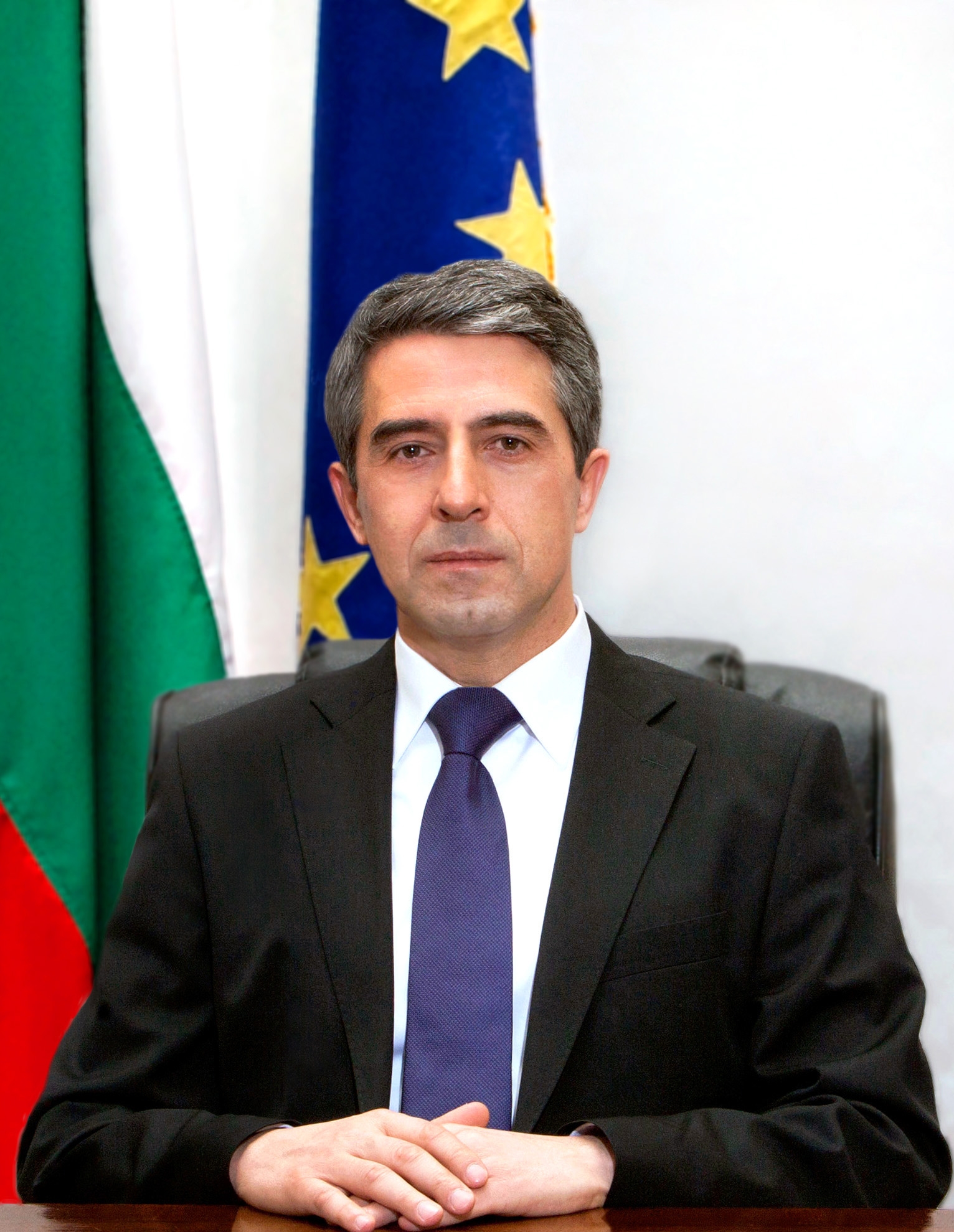
4.1. Minister of Regional Development and Public Works
On July 27, 2009, Rosen Plevneliev was appointed Minister of Regional Development and Public Works under Deputy Prime Minister Simeon Djankov. During his tenure, which lasted until September 9, 2011, Minister Plevneliev was recognized as one of the key "reformers" within the government. He worked alongside other reform-minded officials, including Deputy Prime Minister Simeon Djankov, Minister of Economy Traicho Traikov, and Minister of Environment Nona Karadzhova, to implement significant changes.
4.2. Presidential Campaign and Election
On September 4, 2011, Plevneliev was officially announced as the GERB party's candidate for the President of Bulgaria. He subsequently secured victory in the 2011 Bulgarian presidential election during the second round of voting, held on October 30, 2011. He won with a majority of 52.58% of the vote, defeating Ivaylo Kalfin of the Bulgarian Socialist Party.
The election results were as follows:
| Election | Office | Term | Party | 1st Round Vote % | 1st Round Votes | 2nd Round Vote % | 2nd Round Votes | Result | Outcome |
|---|---|---|---|---|---|---|---|---|---|
| 2011 Election | President of Bulgaria | 5th | GERB | 40.11% | 1,349,380 | 52.58% | 1,698,136 | 1st Place | Won |
Plevneliev took the presidential oath on January 19, 2012, and officially assumed office from his predecessor, Georgi Parvanov, on January 22, 2012. His victory was seen as a significant moment, as it allowed the GERB party to consolidate its influence across key governmental positions, bolstering its capacity to pursue economic reforms in Bulgaria.
4.3. Presidency (2012-2017)
During his five-year term as President, Rosen Plevneliev focused on several key areas, navigated political crises, and engaged in active foreign policy.
4.3.1. Key policies and initiatives
Upon assuming the presidency, Plevneliev outlined several key priorities for his administration. These included the implementation of comprehensive administrative reforms aimed at improving governance and efficiency. He also emphasized initiatives focused on energy efficiency and achieving greater energy independence for Bulgaria. A notable policy was his commitment to removing Bulgarian ambassadors in foreign countries who had previously served as secret agents during the Communist regime, aiming to cleanse the diplomatic service of past influences.
4.3.2. Response to 2013 protests and caretaker governments
In 2013, Bulgaria faced widespread protests against monopolies and high electricity prices, which ultimately led to the resignation of Prime Minister Boyko Borisov's conservative government on February 20, 2013. In accordance with the constitution, President Plevneliev offered mandates to form a new government to the GERB, BSP, and DPS parties. However, after each party declined the mandate, Plevneliev appointed a caretaker government on March 13, 2013. This government was led by Marin Raykov, who served as both Prime Minister and Minister of Foreign Affairs while also being the Bulgarian ambassador in Paris.
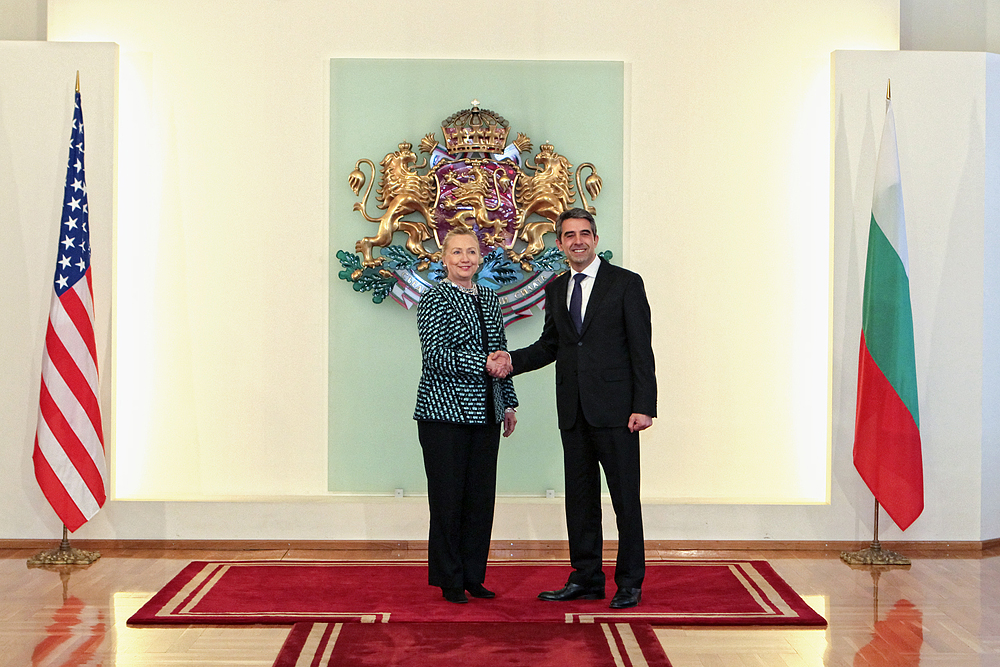
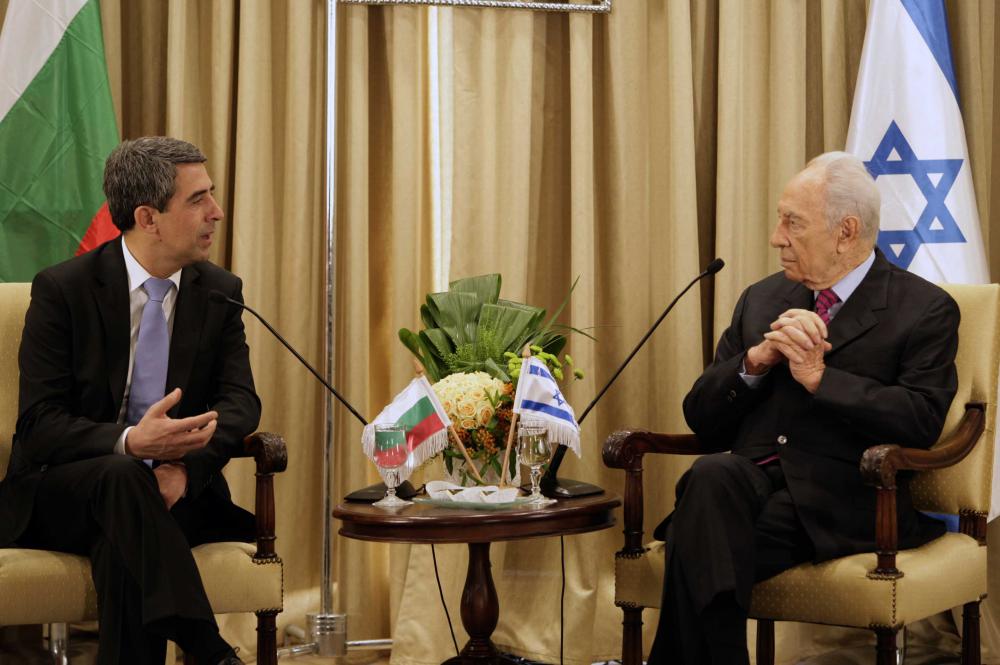
Later in 2013, in response to prolonged protests against the perceived involvement of oligarchy in politics and government, Plevneliev initiated the 'Dialogue with citizens' program. This initiative consisted of three public debates, focusing on critical topics such as market economy, the judicial system, and media freedom, aiming to foster greater public engagement and address societal concerns. On August 6, 2014, Plevneliev appointed the Bliznashki Government, making him the first President of Bulgaria to appoint more than one caretaker government during his term.
4.3.3. Foreign policy and international relations
During his presidency, Rosen Plevneliev actively pursued a foreign policy that sought to strengthen Bulgaria's international standing. He was a vocal advocate for closer relations between Bulgaria and the People's Republic of China, emphasizing the importance of expanding cooperation with the Asian economic power.
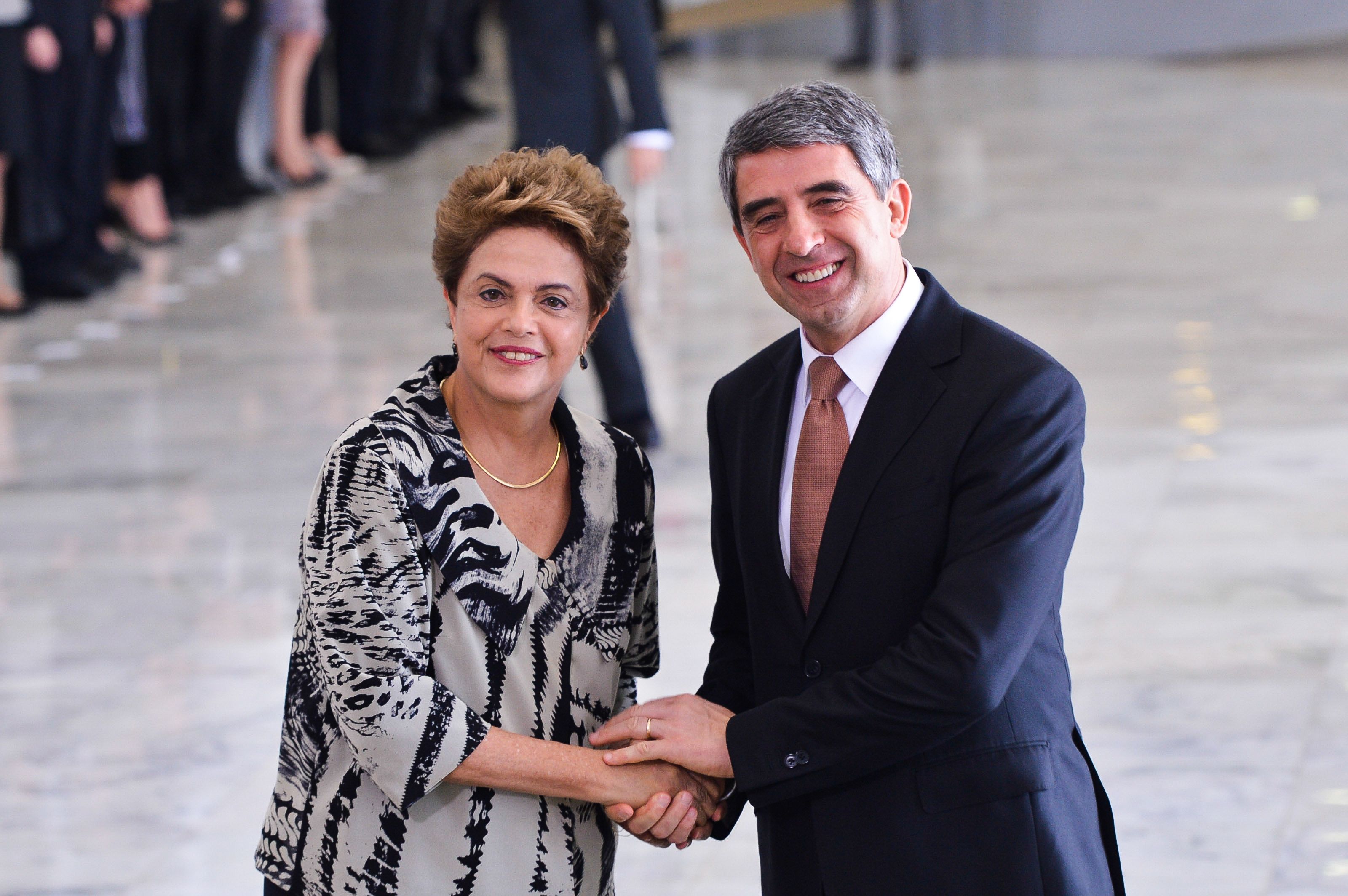
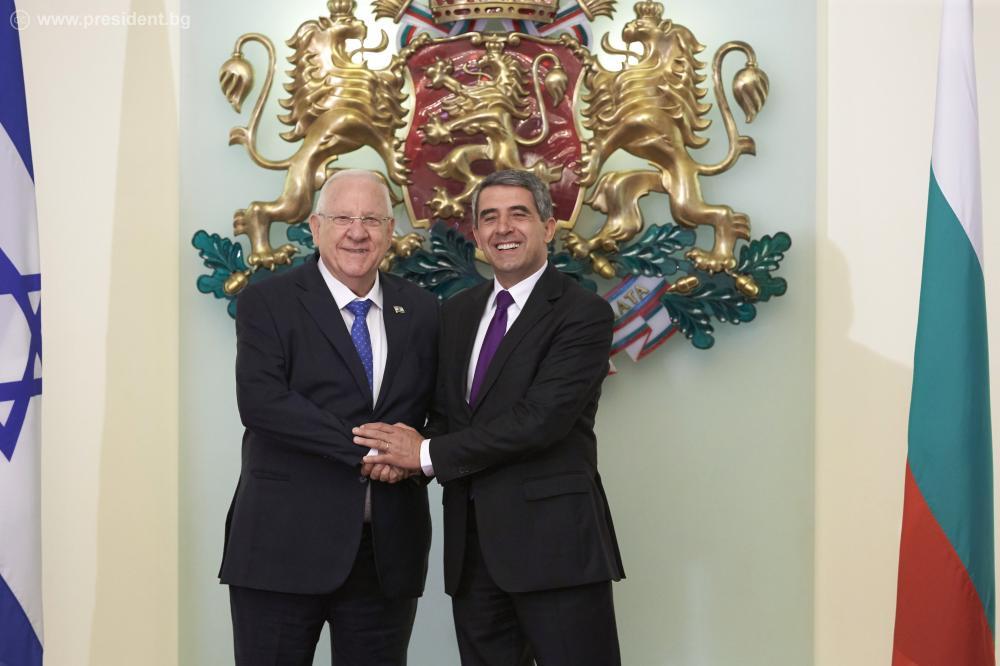
Additionally, Plevneliev frequently voiced his criticism of the immigration policies implemented in the United Kingdom by former Prime Minister David Cameron, reflecting his views on European immigration challenges and the need for a balanced approach.
5. Ideology and Political Stance
Rosen Plevneliev's political ideology is primarily associated with the center-right GERB party, which he represented during his rise to prominence and his presidential campaign. Although he became formally independent during his presidency in 2012, his policies and initiatives consistently reflected a commitment to reformist principles. His victory in the 2011 presidential election was seen as a mandate for the GERB party to pursue economic and administrative reforms, indicating his alignment with a pro-market and pro-European agenda aimed at improving governance and economic stability in Bulgaria.
6. Personal Life
Rosen Plevneliev's personal life includes his family relationships and his linguistic capabilities.
6.1. Marriage and children
Rosen Plevneliev was married to journalist Yuliyana Plevnelieva from 2000 until their divorce in 2017. Together, they had three sons: Filip, Asen, and Pavel. Tragically, their son Filip passed away in 2015 at the age of 14.
6.2. Languages
In addition to his native Bulgarian, Rosen Plevneliev is fluent in both English and German.
7. Controversies
Throughout his public career, Rosen Plevneliev faced certain controversies, most notably a tax investigation that garnered significant political attention.
7.1. Tax investigation
In January 2014, the tax authorities initiated an investigation into President Rosen Plevneliev and his relatives. This action was widely perceived as a politically motivated attack orchestrated by the then-incumbent Oresharski Government. The investigation was not isolated, as other reformist members of the previous Boyko Borisov government were also subjected to similar inquiries during this period, suggesting a broader pattern of politically charged investigations.
8. Honours and Awards
Rosen Plevneliev has received numerous national and international honours and decorations, recognizing his service and diplomatic efforts during and after his presidency.
8.1. Foreign honours
- Greece: Grand Collar of the Order of the Redeemer (July 4, 2012)
- Poland: Order of the White Eagle (November 14, 2014)
- Portugal: Grand Collar of the Order of Prince Henry (June 15, 2015)
- Slovakia: Grand Cross of the Order of the White Double Cross (December 10, 2015)
- Brazil: Grand Collar of the Order of the Southern Cross (February 1, 2016)
- Cyprus: Grand Collar of the Order of Makarios III (February 22, 2016)
- Austria: Grand Star of the Decoration of Honour for Services to the Republic of Austria (April 26, 2016)
- Albania: Honor of the Nation Decoration (June 1, 2016)
- Germany: Grand Cross Special Class of the Order of Merit of the Federal Republic of Germany (June 22, 2016)
- Ukraine: First Class of the Order of Prince Yaroslav the Wise (June 29, 2016)
- Slovenia: Order for Exceptional Merits (July 25, 2016)
- Italy: Knight Grand Cross with Collar of the Order of Merit of the Italian Republic (August 4, 2016)
- Croatia: Grand Order of King Tomislav (August 25, 2016)
- Moldova: Order of the Republic (October 5, 2016)
- Hungary: Grand Cross with Chain of the Hungarian Order of Merit (November 10, 2016)
- Romania: Collar of the Order of the Star of Romania (2016)
- Malta: Companion of Honour of the National Order of Merit (November 17, 2016)
- Montenegro: Grand Cross of the Order of the Republic of Montenegro (December 20, 2016)
- House of Habsburg-Lorraine: Order of St. George
- France: Commander of the Legion of Honour (November 15, 2018)
9. Post-Presidency Activities
After concluding his presidential term, Rosen Plevneliev has remained involved in Bulgaria's political landscape. In October 2022, he was invited by the GERB party to lead a contact group aimed at facilitating cabinet formation talks. Plevneliev accepted this invitation, and the contact group engaged in meetings with various pro-European and democratic forces within the 48th National Assembly. However, these negotiations ultimately concluded without an agreement being reached. A year later, in September 2023, Plevneliev, alongside former Minister of Foreign Affairs Solomon Passy and other prominent public figures, issued a public statement proposing a significant constitutional amendment: the inclusion of Bulgaria's EU and NATO membership within the Constitution of Bulgaria.
10. Assessment and Impact
Rosen Plevneliev's presidency and political career have been subject to various assessments, highlighting both his contributions and the criticisms he faced.
10.1. Positive Assessment
Plevneliev is widely regarded as a reform-minded politician. During his tenure as Minister of Regional Development and Public Works, he was part of a group of "reformers" who sought to implement significant changes. As President, his priorities included administrative reforms, promoting energy efficiency, and working towards Bulgaria's energy independence. His initiative to remove ambassadors who had served as secret agents during the Communist regime was seen as a move to enhance transparency and integrity in the diplomatic service. Furthermore, his 'Dialogue with citizens' initiative, launched in response to public protests, demonstrated an effort to engage with the populace and address concerns regarding the market economy, judicial system, and media freedom, contributing positively to democratic discourse. His presidential victory also empowered the GERB party to pursue economic reforms, which was seen as crucial for a country facing financial challenges.
10.2. Criticism and Controversy
A significant controversy during Plevneliev's presidency involved a tax investigation launched against him and his relatives in January 2014. This action was widely perceived as a politically motivated assault by the then-ruling Oresharski Government. The context of this investigation, occurring alongside similar inquiries into other reformist members of the previous government, suggested a pattern of politically targeted actions. While the specifics of the investigation were detailed, the perception of it being a political maneuver rather than a purely legal one became a notable point of criticism and debate surrounding his public career.